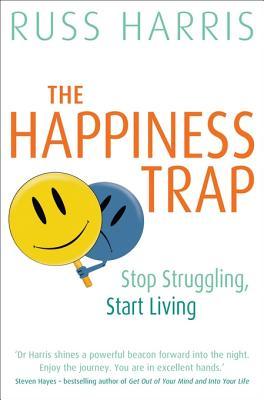More on this book
Community
Kindle Notes & Highlights
by
Russ Harris
Read between
January 1, 2019 - April 10, 2022
a life spent in pursuit of those good feelings is, in the long term, deeply unsatisfying.
Psychological flexibility is the ability to adapt to a situation with awareness, openness, and focus and to take effective action, guided by your values.
Thoughts = words inside our heads. Images = pictures inside our heads. Sensations = feelings inside our bodies.
In ACT, our main interest in a thought is not whether it’s true or false, but whether it’s helpful; that is, if we pay attention to this thought, will it help us create the life we want?
All too often we react to our thoughts as if they are the absolute truth or as if we must give them all our attention. The psychological jargon for this reaction is “fusion.”
Negative stories are not seen as a problem in their own right. It’s only when we “fuse” with them, when we react as if they were the truth and give them our full attention, that they become problematic.
Suppose I am making some serious mistakes in my work and my mind tells me, “You are incompetent!” This is not a helpful thought. It doesn’t tell me what I can do to improve the situation; it’s merely demoralizing. Putting myself down is pointless. Instead, what I need to do is to take action: brush up on my skills or ask for help.
The more useful approach is to ask, “Is this thought helpful? Does it help me take action to create the life I want?” If it’s helpful, pay attention. If it’s not, defuse it.


